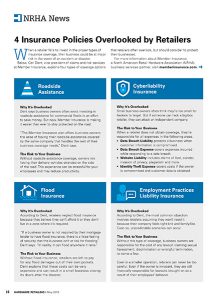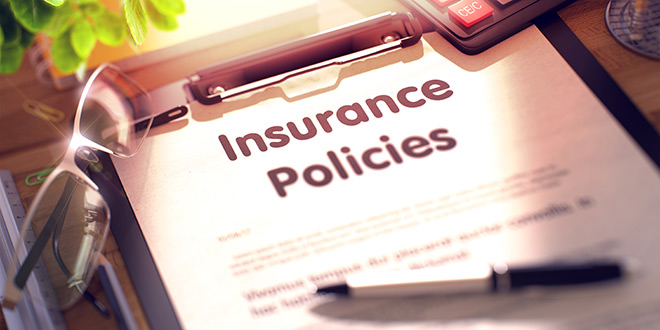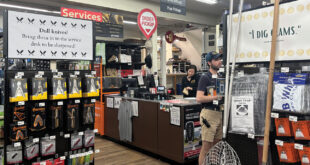
Click the picture to download a PDF of this story.
When a retailer fails to invest in the proper types of insurance coverage, their business could be at major risk in the event of an accident or disaster.
Below, Carl Dent, vice president of claims and risk services at Member Insurance, explains four types of coverage options that retailers often overlook, but should consider to protect their businesses.
For more information about Member Insurance, a North American Retail Hardware Association (NRHA) business services partner, visit memberinsurance.com.
Roadside Assistance
Why It’s Overlooked
Dent says business owners often avoid investing in roadside assistance for commercial fleets in an effort to save money. But now, Member Insurance is making it easier than ever to stay protected on the road.
“The Member Insurance plan offers business owners the ease of having their roadside assistance covered by the same company that handles the rest of their business coverage needs,” Dent says.
The Risk to Your Business
Without roadside assistance coverage, owners risk having their delivery vehicles stranded on the side of the road. This experience can be stressful for your employees and may reduce productivity.
Cyberliability Insurance
Why It’s Overlooked
Small business owners often think they’re too small for hackers to target. But if someone can hack a big-box retailer, they can attack an independent company.
The Risk to Your Business
When a retailer does not obtain coverage, they’re responsible for all expenses in the following areas.
- Data Breach Liability protects a business when customer information is compromised.
- Data Breach Expense covers expenses incurred while responding to a data breach.
- Website Liability includes claims of libel, slander, invasion of privacy, plagiarism and more.
- Identity Theft Expense covers costs if the owner is compromised and customer data is obtained.
Flood Insurance
Why It’s Overlooked
According to Dent, retailers neglect flood insurance because they believe they can’t afford it or they don’t live in a zone where it’s required.
“If a business owner is not required by their mortgage lender to have flood insurance, there is a false feeling of security that the business isn’t at risk for flooding,” Dent says. “In reality, it can flood anywhere it rains.”
The Risk to Your Business
Without flood insurance, retailers are left to pay for any flood damages out of their own pockets. Dent explains that these costs can be very expensive and can result in a small business closing its doors after the disaster.
Employment Practices Liability Insurance
Why It’s Overlooked
According to Dent, the most common objection involves retailers assuming they won’t need it because their company feels tight-knit and family-like. Even so, unpredictable scenarios can occur.
The Risk to Your Business
Without this type of coverage, business owners are responsible for the cost of any lawsuit claiming sexual harassment, discrimination or wrongful termination, to name a few.
Even in a smaller operation, retailers can never be too careful. Even if the owner is innocent, they are still financially responsible for lawsuits brought on as a result of their employees’ behavior.
 Hardware Retailing The Industry's Source for Insights and Information
Hardware Retailing The Industry's Source for Insights and Information








